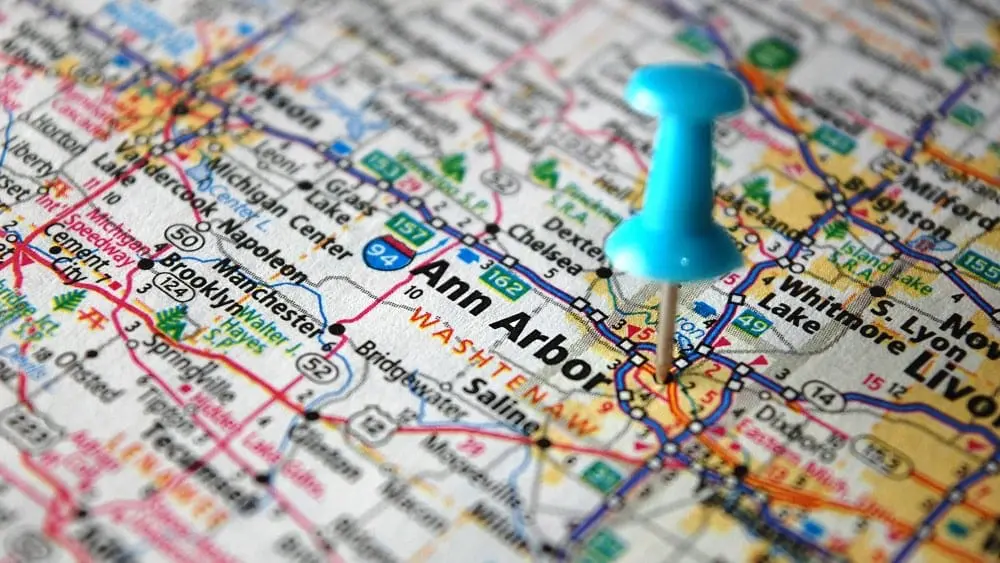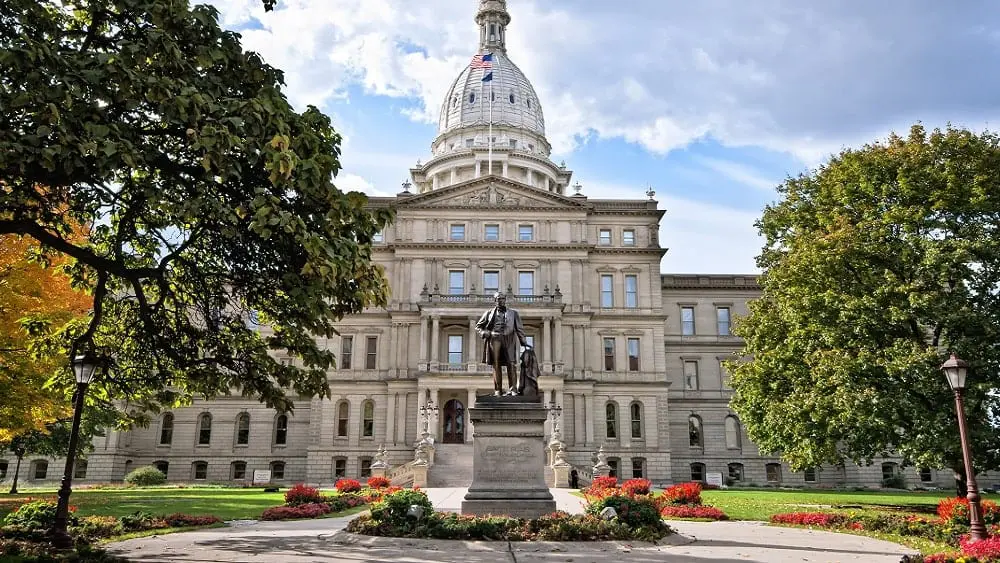
Are you a first-time homebuyer ready to set roots in Michigan? Whether you’re shopping for a new home in busy cities like Detroit and Ann Arbor or you’ve set your sights on small town life in Hillsdale or Saugatuck, there are statewide and local homebuyer assistance programs to help you with the biggest purchase of your life.
If you’re eager to learn more about first-time homebuyer incentives available in Michigan, we’ve done some of the legwork for you. Read on to learn more about these programs, including the fine print on eligibility requirements and how to apply.
Who Qualifies as a First-Time Homebuyer in Michigan?
A first-time homebuyer is defined as any family or individual who has never owned a home, or at least not in the past three years. This may depend on the region. It’s worth waiting it out if you’re nearing the three-year mark because these programs can provide a significant financial boost. As always, when you’re researching, read the fine print for any limitations.
Most of the following state and local programs aren’t restricted to first-time homebuyers, although the emphasis is on helping first-time homebuyers with low- to moderate-incomes and repeat buyers purchasing a home in a targeted area.
Statewide Homeownership Assistance Programs
The Michigan State Housing Development Authority (MSHDA) offers a series of homeownership programs that help with everything from securing below-market interest rates to providing interest-free grants for a down payment. Across the board, the programs are available to first-time homebuyers, anyone who hasn’t owned a property in the past three years and anyone buying a home in a targeted area.
Work on your credit score before applying. A running theme in the eligibility criteria for MSHDA programs is a credit score of at least 640.
Here’s a closer look at each program’s details.
MI Home Loan Program
The MI Home Loan program is the MSHDA’s flagship program, providing first-time homebuyers with a 30-year fixed-rate mortgage that’s set at lower-than-market interest rates. If you’re a repeat homebuyer, you can also apply for a MSHDA Home Loan if you haven’t owned a home in the past three years or you’re buying a home in a targeted area in the state.
Another great perk? These loans can be combined with MSHDA’s Michigan Down Payment Assistance grant, which provides up to $7,500 to low- and moderate-income households. More details on this program can be found below.
To be eligible for an MI Home Loan, all adults in your household must have a minimum credit score of 640 or 660 for multiple-section manufactured homes. Because the priority is on helping low-income households, household income limits apply but can vary depending on your family size and property location. Your home’s sales price cannot exceed $224,500 statewide.
Finally, all adults in your household will also need to complete a homebuyer’s education course if you apply for the down payment assistance. Taking a day-long class to learn more about the homebuying process and the financial responsibilities tied to homeownership is typically required for most homebuyer assistance programs. In Michigan, the courses are provided by MSHDA’s network of housing counseling agencies, so you have plenty of options to choose from.
Check out the full details of the MI Home Loan program on its website. You can find a participating lender near you to help you get started too.
MI Home Loan Flex Program
The MI Home Loan Flex program varies slightly from the MI Home Loan mortgage, providing a bit more flexibility to borrowers. The program is open to all first-time and repeat homebuyers in Michigan.
It still provides a 30-year low-interest fixed-rate mortgage issued through a participating lender, but it’s not as strict on the requirements. The main difference is that not every adult in your household needs to apply and fit the income and credit score criteria. Only qualifying borrowers will go through the underwriting process for credit, assets and income. With MI Home Loan Flex, collections and judgments do not necessarily need to be paid off.
Your home’s maximum sales price still sits at $224,500 and you will need a minimum credit score of 660.
Read more about the MI Home Loan Flex program.
Down Payment Assistance Program
If you’ve secured either a MI Home Loan or MI Home Loan Flex mortgage, you should apply for down payment assistance to receive up to $7,500 — or 4 percent of your home’s purchase price, whichever is less — to help you with your down payment and any closing costs. The assistance comes as a no-interest loan, but you will need to repay the $7,500 when your home is sold, refinanced or paid in full.
The only catch? You’ll need to put down at least 1 percent of your home’s purchase price using your own savings, and all adults in your household need to complete a day-long homebuyer’s education course.
Read more about the Down Payment Assistance Program details.
Mortgage Credit Certificate
Not all states’ housing authorities provide mortgage credit certificates (MCCs), but luckily for homebuyers in Michigan, the MSHDA does.
An MCC provides eligible homebuyers with a nonrefundable federal income tax credit used with a mortgage. In a nutshell, it reduces your federal income tax, creating additional income for you to use toward your mortgage payments and other household expenses.
Qualified homebuyers can credit up to 20 percent of their annual mortgage interest paid against their year-end tax liability. The maximum credit is $2,000 per year. The tax credit is allowable every year for the life of your original mortgage (up to 30 years). The MCC is available to all first-time homebuyers and repeat homebuyers in targeted areas.
Because the MSHDA’s aim is to help low- to moderate-income families buy their dream home, household income limits also apply for the MCC program.
Read more about Michigan’s Mortgage Credit Certificate on the MSHDA website or on the program’s official flyer.
Step Forward Michigan
While this program isn’t specifically for homebuyers, Step Forward Michigan is worth mentioning for anyone about to commit to a mortgage. Set up by the MSHDA and the Michigan Homeowner Assistance Nonprofit Housing Corporation, Step Forward is designed to keep homeowners in their homes during financial trouble.
If you’ve lost your job or are facing another financial emergency and can’t keep up with your mortgage payments, the program steps in to stop delinquency on your home loan. It provides interest-free loans of up to $30,000 to assist with your mortgage, property taxes and any condominium/homeowner’s association fees. These loans are forgivable at 20 percent each year as long as the property remains your primary residence. If you end up staying in your home for five years or more after the loan is granted, you won’t have to pay back a penny. To be eligible, you must demonstrate that you’ve encountered involuntary hardship that’s made it too difficult to keep up with your mortgage.
In addition, in order to qualify, your lender must be a participating partner in the Step Forward Michigan program at the onset. See the full list of participating lenders here. The funds are paid directly to your lender to alleviate your stress with mortgage payments.
You can also read more about the Step Forward Initiative on its official website.
Homebuyer Programs by Location
You should also check on local homebuyer initiatives, as you may have the opportunity to double up on state and local incentives.
The local programs are a mixed bag. Some are exclusively for first-time homebuyers but others help any homebuyers —including repeat buyers — who are within a lower-income bracket. Read more for our complete rundown of local programs.
Ann Arbor

If you’re looking for a new home in Ann Arbor, the bustling university town runs a Section 8 Housing Choice Voucher (HCV) Homeownership program, which provides a voucher to help families who receive a rental subsidy with getting onto the property ladder.
Low-income families renting with assistance from the Ann Arbor Housing Commission HCV program can apply to have their subsidy applied to a mortgage instead of to their rent. Income limits apply, and eligible applicants must complete a homebuyer’s education course to prepare for the financial responsibilities heading their way as homeowners.
Read more about the Ann Arbor Homeownership program on its website and in this brochure that explains the entire application process.
Detroit

If you’re buying a home in Detroit, the city runs a Homeowners Property Tax Assistance Program to help if you cannot pay your taxes for financial reasons. If you’re eligible, you may be able to reduce or eliminate your current year’s property tax obligation.
To qualify, you would need to fall under maximum income requirements and your home must be your primary residence.
Check out the Homeowners Property Tax Assistance Program website for the full eligibility requirements, documents you’ll need on hand to apply and how to submit your application.
Genesee County
Genesee County (Flint area) runs a HOME Down Payment Assistance Program thanks to funding from the U.S. Department of Housing and Urban Development (HUD).
While the county doesn’t explicitly say how much funding is available to homebuyers, it notes that it will provide down payment and closing costs assistance to low- and moderate-income families who are first-time homebuyers (or anyone who hasn’t owned a home in the past three years).
You can learn more and download the application form on the program’s website.
Grand Haven

Homebuyers wanting to purchase a home in Grand Haven should look into the Grand Haven Neighborhood Housing Services’ homeownership initiatives.
For starters, there is a six-hour workshop to prepare homebuyers with obtaining a mortgage loan, managing their money, shopping for a home and keeping up with finances once they’ve got the keys to their new home.
The organization also runs a Homebuyer Purchase and Repair Program, which combines $10,000 in down payment assistance with up to $20,000 in grant money to help homebuyers make repairs to their home purchase in Northwest Ottawa County.
The home you’re looking to buy must be located in Grand Haven, Grand Haven Township, Ferrysburg or Spring Lake Township.
Check out both programs’ details on the Grand Haven Neighborhood Housing Services’ website.
Grand Rapids

House hunters looking for a home in Grand Rapids should check out the city’s Homebuyer Assistance Fund, a program that offers up to $7,500 for low- and moderate-income homebuyers. The cash is supposed to help homebuyers offset down payment and closing costs expenses.
Eligibility is limited to homebuyers who haven’t owned a home in the last three years and who also fit into annual income limits. Your household must not have more than $10,000 in assets to secure this funding. You also must agree to use your home purchase as your primary residence for at least five years. And you’ll need to complete a homebuyer’s education course and get approved for a mortgage from a participating lender.
Read more on the Grand Rapids Homebuyer Assistance Fund site. It includes a list of participating lenders, homebuyer’s education course providers and property requirements.
Lansing

If you’re shopping for a home in Lansing, the state capital has a down payment assistance program, based on available funding, that provides eligible households up to $10,000 to assist with their home purchase.
The funding is handed over as a zero-interest second loan that’s forgiven after 20 years for newly constructed homes.
You need to apply for this program before you close on your home and you must complete a homebuyer’s education course too. The priority is on helping homebuyers with low to moderate incomes, so maximum income amounts apply. You’ll also need to contribute a minimum of $500 of your own funds toward the home purchase.
Visit Lansing’s DPA Program website to learn more.
Little Traverse Bay Bands of Odawa Indians
If you are buying a home in Harbor Springs and you’re a tribal citizen, the Little Traverse Bay Bands of Odawa Indians’ housing department has a string of programs that may be useful during your homebuying process.
The department provides home improvement assistance, credit counseling with an emphasis on homeownership, down payment and closing costs assistance, homebuyer counseling and foreclosure prevention assistance.
The department also can assist with connecting tribal citizens with financial institutions for mortgage prequalification.
You can check out the full lineup of homeownership assistance programs on the Little Traverse Bay Bands of Odawa Indians’ website.
Sault Ste. Marie

If you’re setting roots in the city of Sault Ste. Marie in Chippewa County, the Tribe of Chippewa Indians offers a down payment assistance program to first-time homebuyers who are tribal members. The program provides up to $9,500 or 20 percent of the purchase price of the home.
The program is income-based, and applicants must be a first-time homebuyer purchasing a home in one of the seven counties in the area (Chippewa, Luce, Mackinac, Alger, Delta, Schoolcraft and Marquette).
The tribe also helps families purchase a home via HUD’s Section 184 Indian Home Loan Guarantee Program. This initiative helps tribal members purchase a new home including new construction homes and manufactured homes.
Visit the Tribe of Chippewa Indians’ homeownership program website to learn more.
Washtenaw County

Homebuyers in Washtenaw County (Ann Arbor area) can take advantage of the county’s homebuyer education courses and down payment assistance programs to help with purchasing their first home.
The courses and programs are administered by local nonprofit agencies. They also offer financial management and credit repair coursework, if you’re preparing to apply for a home loan, and post-purchase home maintenance and repair programs.
Read more about the slate of homebuyer programs on the Washtenaw County website.
Wayne County

Homebuyers in Wayne County (Detroit area) should look into the county’s First-Time Homebuyers Program, which provides a loan to help with down payment and closing costs. Those who haven’t owned a home in the past three years are also eligible.
The funding comes as an interest-free deferred loan that you only need to pay when you sell your property or when you’ve paid off your mortgage. Homebuyers purchasing a newly constructed home can receive up to $10,000.
To be eligible, you must complete a homebuyer education course and purchase your home within one of the 37 participating communities in Wayne County.
Learn more on the First-Time Homebuyers Program on the Wayne County website.
Ready to Call Michigan Home?
Whether you’re house hunting for the perfect city home in Ann Arbor, Detroit, Grand Rapids, or Lansing, or you’re ready to settle in more tranquil parts of the state like Battle Creek, there are plenty of new home options in Michigan.
And thanks to the string of state and local assistance programs and incentives, you could find the help you need to purchase that new dream home.
Check out more listings across the state of Michigan and follow NewHomeSource on social media for additional home shopping tips and tricks.
The links on this site were researched by NewHomeSource. This is as cohesive a list as possible. Individual homebuyers should contact entities to fully understand requirements and processes.
Other Michigan Resources

Carmen Chai is an award-winning Canadian journalist who has lived and reported from major cities such as Vancouver, Toronto, London and Paris. For NewHomeSource, Carmen covers a variety of topics, including insurance, mortgages, and more.
 First-Time Homebuyer Programs in Kentucky
First-Time Homebuyer Programs in Kentucky